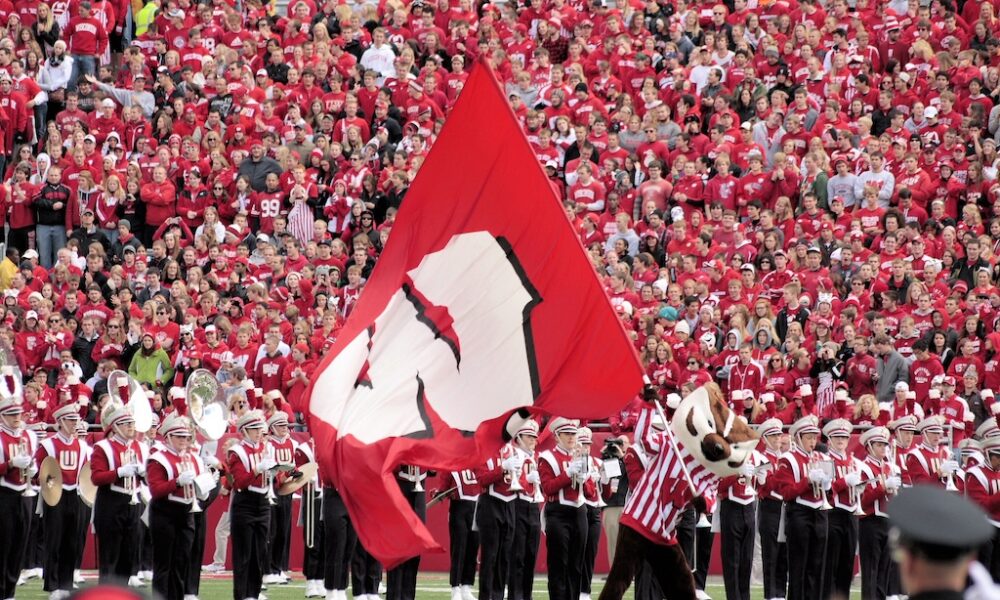The Indian Gaming Association (IGA) has aimed its spotlight at Wisconsin, where tribes are locked in a battle with sports betting operators who oppose their bid to legalize online sports wagering. At the same time, they’re trying to hold off competition from sports prediction markets.
IGA on Wednesday hosted its second webinar this month on what it’s dubbed “the battle for Wisconsin.” A bill before the state legislature would expand sports betting online statewide from its current availability only in person at tribal casinos, under tribal management via a Florida-like hub-and-spoke model.
The Sports Betting Alliance (SBA), representing commercial operators such as DraftKings and FanDuel, has come out against the effort. DraftKings partners with the Lac Du Flambeau Band of Lake Superior Chippewa Indians for retail sports betting at the tribe’s casino.
The bill was expected to be voted on Wednesday in the Assembly, but it was pulled and will be brought back in January. SBA opposes language in which tribes are will receive 60% of the revenue, arguing it’s not economically feasible for the public companies. The groups said they don’t operate in Arkansas and Florida under a similar scenario where tribes are required to get 50% of the revenue. There’s also pushback in Wisconsin from a conservative legal group and talk-radio pundits against the expansion of gambling via statewide mobile wagering available, which they claim is unconstitutional.
Wednesday’s webinar moderated by Victor Rocha, IGA’s conference chair and Jason Giles, IGA’s executive director, featured Nicole Boyd, chairwoman of the Red Cliff Band of Lake Superior Chippewa, and Dominic Ortiz, CEO of the Potawatomi Casinos & Hotels.
“We’re hopeful the tribes in Wisconsin can stay united amid some of these recent attacks,” Giles said. “I was talking with Minnesota tribes. A venture capitalist firm is funding a RICO case there to declare the tribal compacts unconstitutional under state law.”
Giles said that anyone with a lot of money behind them can fight cases in court for an unlimited period. “It’s daunting and scary.”
Rocha, who said legislation is being worked on in California to ban prediction markets, expects a backlash against these operators, especially when there’s a change in power dynamics in Washington, D.C., in the future. That includes prediction market operators like Kalshi using the Commodity Futures Trading Commission registration to offer sports betting in states where it’s not legal and others by bypassing state regulation.
Boyd called what’s happening in Wisconsin “an outgoing battle” for the tribes and welcomed the unity within Indian Country and with state government leaders.
“We’re here to exercise our sovereignty in this state and be united,” Boyd said.
Ortiz said all they want is a fair playing field and described how tribes across the country were “forced into a corner” to accept deals with national operators, because they didn’t initially have the authority to offer mobile gaming outside the reservation. That’s now possible, thanks to servers on the reservations approved during the Biden Administration and via court cases.
“We’ve cleared the path with hub-and-spoke and tribes are able to effectively operate in their markets,” Ortiz said. “We said we want Wisconsin to have a fair playing field. That means everybody operates under (the Indian Gaming Regulatory Act). We as tribes are successfully operating the No. 1 successful retail sports book in the country under IGRA and we’re going to take that model and do online sports betting. We’re going to continue to unite the tribes and protect the sovereignty and do what we have always done. We’re about partnerships, not ownerships.
“Partnerships are 50-50. They’re where you start the conversation,” Ortiz said. “If the (sports betting operators) can’t have it their way, they’ll attempt to come in here and burn the market. They’ll try to shut us down, even though we’re for Wisconsin. We keep the money here and invest it. We have responsible gaming.”
Boyd said growing sports betting via online will help the 11 tribes in Wisconsin expand services to their communities.
“We’ll fight hard and let the lobbyists and lawyers fight our dirty fight,” Boyd said. “We’re fighting for our babies and grandchildren who aren’t here yet. This is our home and everybody is a beneficiary when we’re successful.”
Rocha asked Ortiz what operators mean when they claim they can’t survive under IGRA’s revenue requirements. He responded it’s about ownership of gaming in Wisconsin and how operators are trying to turn tribes against one another.
“We’re going to show the nation there’s a model that works that can benefit the operators and state,” Ortiz said. “It’s not fair if they come and play dirty—taking the air out of our ball and flatten our tires or take our spark plugs, just because they can’t get ownership.”
Rocha noted that on Monday, DraftKings and FanDuel pulled out of the American Gaming Association, because they’re going into prediction markets. Now, they’re saying they’ll go into states and geofence reservations, so that everyone can gamble except on tribal lands.
“They aren’t essential services,” Rocha said. “No law says they need to be in all 50 states. When you get 50 state attorneys general standing against all those Supreme Court lawyers, it’ll come down to state’s rights.”
Rocha described that what sports betting operators are trying to do mimics Manifest Destiny, the 19th century belief that the U.S. was destined to expand across the North American continent, fueling westward expansion through the violent displacement of Native Americans.
“To me, gaming is just as important as the water and the land,” Rocha said. “It’s a new way the Creator sent to us to participate in the American dream that’s been denied for us for so long. These companies are coming in the same way and that’s why I call it Manifest Destiny. It’s the same attempt to wipe us out — our future, our elders, and our children. Nothing will be left. This is the existential fight that our grandparents told us about when we were kids and now here we are. It never ends. It’s our destiny and we accept it. We know this is what we have to do.”
Rocha said the tribes in California and elsewhere are watching what’s happening in Wisconsin and reaching out and helping.
“You guys are doing a good job in showing unity,” Rocha said. “It’s so important to us that these fights continue. It’s an honor to be in these fights and I’m proud of what you’re doing in Wisconsin. All of us around the country are watching with pride.”
Ortiz said tribes have undertaken a grassroots campaign to push the bill for approval and that residents want online mobile sports betting as other states have. He contends the delay in the vote until January allows tribes to continue to build their support.
Ortiz said his only concern about the ultimate outcome at the federal level is that the prediction markets are trying to be “too big to fail” and hope that keeps them from getting shut down nationally.
Rocha predicted that once prediction markets are shut down by the courts, betting operators will come back on “their hands and knees, saying they didn’t mean it” and want to partner with tribes.


